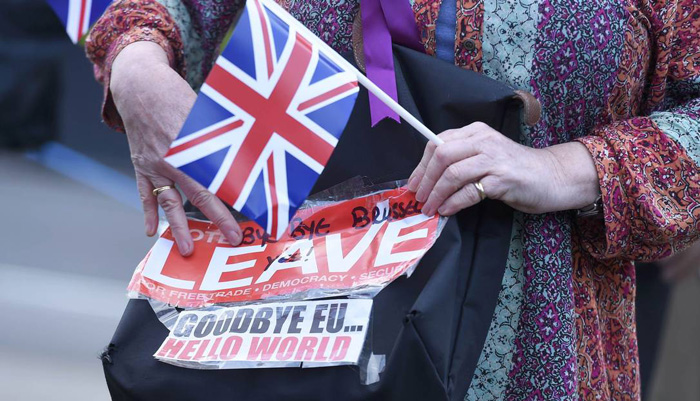RAFFAELLO PANTUCCI
Brexit has changed the European landscape overnight. Among the many questions and issues raised during the campaign was the potential for the vote to change the U.K.’s domestic security situation, in particular in response to the menacing threat of international terrorism. The reality is that in the wake of the vote, very little will change.
Many of the practical questions around counter-terrorism and national security had remained the domain of member states. This is not to say, however, that nothing will change—outside the EU, the U.K. will end up finding itself less able to influence and participate in European conversations that are ultimately focused on common threats. And there is the danger that the social tensions that the Brexit vote may exacerbate will spread across the Union and become a destabilizing force that will accelerate processes of disenfranchisement and radicalisation.
The fundamental question of intelligence sharing to address common threats is unlikely to change. Security agencies across the European continent have a close set of links that go far beyond the political tensions we are currently seeing playing out. All face a common threat from international extremist groups like ISIS or al-Qaeda and are focused on disrupting and destroying it.
The U.K. in particular is perceived as a power that contributes greatly to this fight in terms of practical information and intelligence, as well as strategic thinking about how to deal with such threats. This is unlikely to change in the short to medium term. All are continuing to face the same threats and are focused on protecting life and disrupting terrorist networks, and therefore information sharing and practical information will continue to flow.
The negative side of the equation comes in with the potential loss of U.K. support and leadership in the emergent conversation about greater integration and the development of joint security functions. Europe has long benefited from British support and leadership on the topic of threats, with many looking to the U.K.’s CONTEST framework as a structure that they have tried to emulate in parts.
Similarly, the U.K.’s efforts on strategic communications to counter terrorism, and their support for Europol both point to a leadership role that others will have to step into. It also means the U.K. will have a more limited ability to influence the debate and direction of these initiatives in Europe, a place which will remain of key strategic importance to the U.K.
But in many ways, the practicalities of mitigating common threats will continue to drive the U.K. to cooperate with European partners where necessary. Intelligence sharing will undoubtedly continue as appropriate, and we will continue to see joint operations to disrupt terrorist networks. Notwithstanding a certain level of awkwardness that might slip into some of these discussions and the practicalities that might be imposed if vehicles like the European Arrest Warrant are suspended with the U.K., security forces and agencies across the continent will continue to work together to counter these threats together.
There are also unintended and unpredictable security consequences, however. In the first instance, we have seen how there has both been a rise in xenophobic narratives and violence in the U.K. as well as a strengthening of far-right parties across the continent in the wake of the Brexit vote. These tensions may escalate into violence—creating a context where extreme right-wing terrorist groups may thrive. This is something that will not only exacerbate social tensions further, lead to possible deaths and a new threat for security agencies to deal with, but will also strengthen of the 'clash of civilizations' narratives that sit at the heart of ISIS and al Qaeda’s views of the world.
And finally, it is going to take many years to fully understand the consequences to the U.K.’s global security position in the wake of Brexit. In a world of growing superpowers, the U.K. has taken a step back from a potentially emergent one. Notwithstanding whatever agreement that might be reached between the U.K. and its European partners to understand what Brexit looks like in practice, the damage in some ways is done, and we have now seen the limits of pan-European cooperation and discussion. This will undoubtedly damage the bloc on the world’s stage and it will take some time for the full resonance or meaning of this to play out.
Ultimately, the practical security questions that trouble individual member states are unlikely to be damaged by Brexit, though the potential for social tensions to become exacerbated and lead to violence is going to be a growing concern. The bigger strategic questions about the future of Europe in the world and a common European security identity is going to come increasingly under question and face greater difficulties in a world that continues to have major strategic threats and dangers confronting it.
The question now is how both the remnant EU and the U.K. find ways of moving through this crisis as global players, rather than retrenching their attentions back home and becoming consumed by the hugely complex internal politics that have been thrown up by the Brexit crisis. For European security to be assured, the continent needs confident, strong and coordinated approaches to the world—be this under EU, NATO or other auspices.







Comments